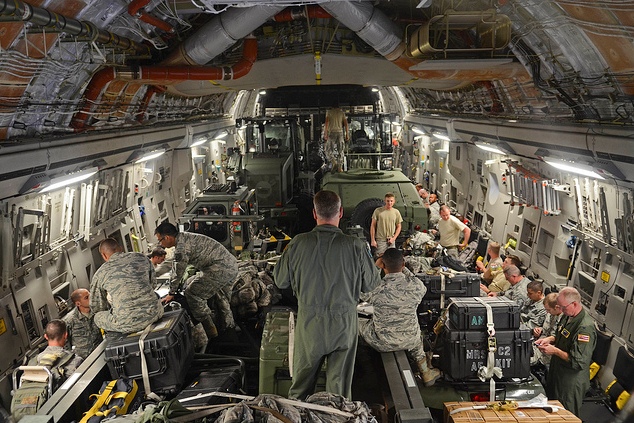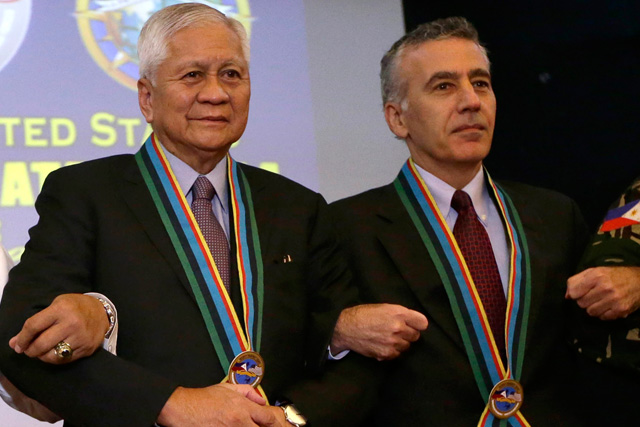By Camille Diola (philstar.com)

Airmen from the 36th Contingency Response Group and 535th Airlift Squadron situate their luggage and themselves on their seats Nov. 15, 2013, on the Andersen Air Force Base, Guam, flightline before the aircraft departs to support Operation Damayan in Tacloban, Philippines. Operation Damayan is a U.S. humanitarian aid and disaster relief effort to support the Philippines in the wake of the devastating effects of Typhoon Haiyan (local name Yolanda). US Air Force/Senior Airman Marianique Santos
MANILA, Philippines — The United States is no longer the Philippines' "Big Brother" as the 19th century foreign policy concept goes, the American Ambassador to the Philippines Philip Goldberg said.
Goldberg was quick to dismiss left-wing notions of a strong US watching over its smaller Southeast Asian ally, saying the two countries are now "friends."
"[It] is a concept from the last century. I'd like to say now that our relationship is much different and much healthier in that sense, because we're no longer 'Big Brother'," Goldberg said in an interview over Radyo Singko on Wednesday.
He said that the people-to-people ties of Americans and Filipinos who are immigrants in each others' countries would not make one the colony and the other its conqueror.
"It is a cousin, a mother-in-law, friends ... it's a different relationship," Goldberg said, pointing out that the Philippines was the only American colony in its long history.
Goldberg also addressed concerns that the US' various forms of assistance in the Philippines are largely political and economic in motive.
Washington has pledged about P2.7 billion for the relief and rehabilitation of central Philippine areas ravaged by the powerful typhoon Yolanda in November 2013. The US also supports the Philippine military with $50 million in funding the past year.
Goldberg said that Americans and their government believe they "should help when other people are suffering or have humanitarian needs."
"It's in the nature of our country," said Goldberg, who also admitted that the US is not unique in assisting friends and neighbors.
However, the Philippines-US ties are also distinct as both countries share a "long history" of friendship and alliance, Goldberg explained. The Philippines is the US' oldest ally in Asia.
"So I think that it makes sense that we have these kinds of assistance programs, these kinds of economic relationship with the Philippines as it develops," he said, adding that the US benefits tremendously from its partnerships abroad.
"That's what's in it for us, we want and need friends and allies around the world also," he said.

Foreign Affairs Secretary Albert del Rosario and US Ambassador to the Philippines Philip Goldberg link arms following the opening ceremony of the joint U.S.-Philippines military exercise dubbed Balikatan 2014 on May 5, 2014 at the Armed Forces of the Philippines headquarters in Quezon City. AP/Bullit Marquez
He also dismissed that the US' "involvement" in world affairs such as in the conflict in Syria and the Russia-Ukraine crisis are a form of "interference."
Goldberg said that many problems fall on America's lap as a country with great human and financial resources.
"We don't view our involvement in the world as interference," he said. "Clearly like other countries we have our own interest and we pursue them. But also it oftentimes falls to the US and I have to tell you at great cost—human and money—it falls to us to deal with the problems because of our capability, our worldwide presence and the fact that this is a situation in the world [that affects us all]."


No comments:
Post a Comment